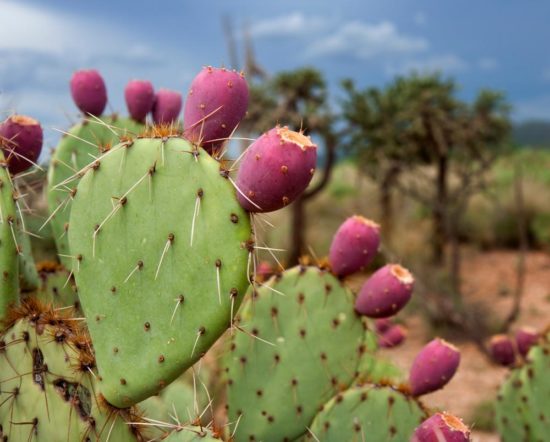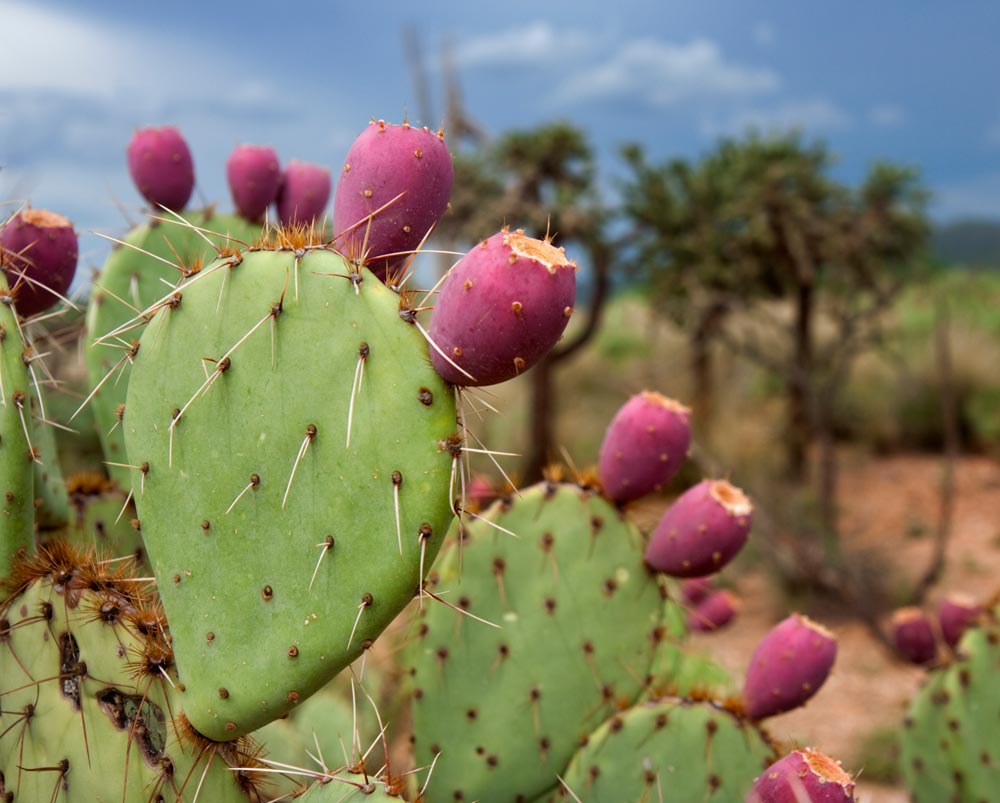 The Nopal or Prickly Pear Cactus is a staple across the southwestern United States and Mexico. Its broad flat leaves can be eaten as a vegetable (like a green pepper) and its colorful bulbous fruit is often sought after for the health benefits of its juice. The plant contains betalains, anti-inflammatory compounds common in beet root, but also found in the red pigments of the cactus fruit. More researchers are looking at the effects of betalains in a variety of conditions including type 2 diabetes, cardiovascular disease, and aging itself.
The Nopal or Prickly Pear Cactus is a staple across the southwestern United States and Mexico. Its broad flat leaves can be eaten as a vegetable (like a green pepper) and its colorful bulbous fruit is often sought after for the health benefits of its juice. The plant contains betalains, anti-inflammatory compounds common in beet root, but also found in the red pigments of the cactus fruit. More researchers are looking at the effects of betalains in a variety of conditions including type 2 diabetes, cardiovascular disease, and aging itself.
Findings from a recent double-blind, placebo-controlled randomized clinical trial, published in Clinical Interventions in Aging, demonstrated that daily consumption of 3 oz of Nopal fruit juice (NFJ) for 8 weeks was associated with statistically significant improvements in neck and back mobility and range of motion, when compared to the placebo group, allowing participants in the NFJ group to be more physically active. Participants ranged in age from 35 to 75 years.
For the study methodology, joint range of motion (ROM) was examined by digital inclinometry along the vertical weight-bearing axis of the body, from the neck to the knees and the shoulders at baseline and 8 weeks. Blood tests for cytokines and C-reactive protein (CRP) were performed. Participants filled out questionnaires on wellness, pain, and reliance on pain medications.
After consuming NFJ for 8 weeks, participants reported improved ROM, particularly in the cervical and thoracic/lumbar regions. Participants in the NFJ group reported they needed less pain medication to complete daily activities and that pain placed less limitations on daily activities, and several daily activities became easier, including walking, sitting, and lying. Participants in the subgroup with CRP levels between 1 and 9.9 mg/L at baseline saw a significant reduction (30%) in CRP levels compared to the placebo group where they increased (31%) (P<0.915).
The authors concluded that when taken together, the results suggest that NFJ provided support of joint mobility and physical functioning, likely via antioxidant protection and anti-inflammatory properties of NFJ.
Source: Jensen GS. Improved joint mobility associated with reduced inflammation related to consumption of Nopal Cactus fruit juice: results from a placebo-controlled trial using digital inclinometry to objectively document mobility of all major joints. Clin Interven Aging. 2020:15 2341–2352.








